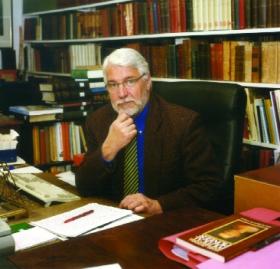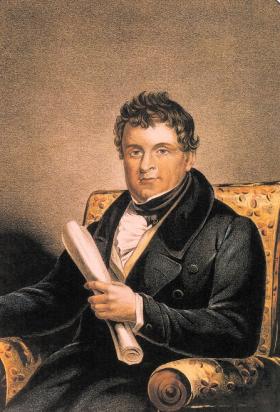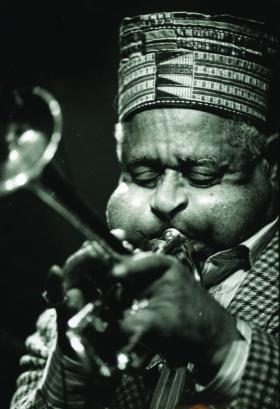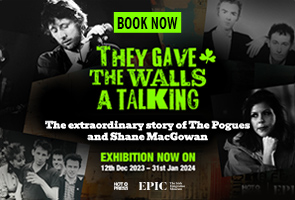History, biography and all that jazz
Published in Features, Features, Issue 6 (Nov/Dec 2005), Volume 13 MÓH: What stimulated your interest in history?
MÓH: What stimulated your interest in history?
PJ: One was an inspirational history teacher, Mr ‘Dan’ Dare of Dame Alice Owen’s school in Islington. The other was my family, amongst whom politics was the staple topic of conversation. My family was very divided, some on the left and some on the right. I also had Irish relations on my mother’s side so I was soon aware of there being a republican side to the equation, although I do not remember unionism ever being mentioned. From an early age I became familiar with heated arguments about the merits of Labour and the Conservatives, with references to events stretching back to the First World War. The strengths and weaknesses (mostly the latter) of Ramsay MacDonald, Baldwin, Chamberlain, Churchill, Attlee and Harry Pollitt became well known to me.
MÓH: How did you get interested in Irish history?
PJ: In my final year at the University of Reading I took a special subject course with Professor Aspinall on British political history, 1815–32, which got me interested in O’Connell’s campaign for Catholic relief and, more generally, in pressure groups. For my doctorate, Aspinall suggested Irish parliamentary representation, 1801–20, as a contribution to his work for the History of Parliament. I agreed, thinking that would enable me to further my interest in O’Connell and pressure groups.
MÓH: What brought you to Queen’s?
PJ: After three years of research, I became increasingly committed to what might be called a sociological approach to historical research and to political history in particular. I had naturally become more conversant with Irish history and had done a lot of research in Dublin and Belfast. A post at Queen’s came up, I applied for it and was called for interview. I remember the experience very well. There was a preliminary breakfast interview with Ken Connell in the dining room of the Liverpool–Belfast ferry. The interview proper was conducted by Ken Connell, Michael Roberts and Jim Beckett, with the vice-chancellor, Michael Grant, in the chair. I was offered a post in Modern History and accepted it.
MÓH: What do you think was the ethos of the department when you arrived in 1964?
PJ: It was almost entirely English, except for Jim Beckett, and very Oxfordian. There were eight or nine members of the department—all male except for Dorothy Clarke. What was striking was the wide-ranging accomplishments and interests of colleagues. Michael Roberts had command of nine languages and was very knowledgeable about literature, art and music. Jim Beckett acquired Norwegian, translated Norwegian poetry into English, and was an expert on Jane Austen. Having a broad range of cultural interests seemed to be expected of academics then. I would describe the ethos as being very challenging intellectually, broad-minded, liberal even, and not solely dedicated to the latest article on this or that in a historical journal. As for the students, some of whom were actually older than I was when I started, they were predominately male, Protestant and middle-class, with the majority resident in Belfast. Nuns, however, then came to Queen’s and were very good value in tutorials. Lectures were given in gowns, tutorials for three or four students were normal, and at the end of each year individual students were interviewed by all members of staff (in gowns) and given a progress report. Since then the social profile has changed, with fewer middle-class students from professional backgrounds and more from country areas. The gender and religious balances have also changed and are probably nearer 50:50 now in both cases. The total number is also much larger, with much higher staff–student ratios.
MÓH: You are Professor of British History. What do you think British history contributes to Irish history?

Daniel O’Connell—‘In my final year at the University of Reading I took a special subject course on British political history, 1815–32, which got me interested in O’Connell’s campaign for Catholic relief.’ (Currier and Ives)
PJ: My principal interests have been: first, the landed élites in the two islands in the eighteenth and nineteenth centuries, which became multi-national; second, the parliaments of the two islands, the Westminster one also becoming multi-national; third, British governments, which had responsibility for the two islands. ‘British history’, with all its imperfections, seemed to sum up best what my research has been about. Being a Londoner, I have never seen myself as an English historian. It is important for students in Ireland to have some understanding of the workings of British government and what its views on exercising responsibility here have been. I would take the same view if I was teaching the subject in England, where knowledge of the way governments have dealt with their responsibilities here and in Scotland and Wales, let alone the wider empire, is essential to any rounded interpretation of their functions in the eighteenth and nineteenth centuries. Students here sometimes assume that ministers then would have regarded the affairs of England as being of principal importance when sitting round the cabinet table. But that was often not the case. Foreign affairs took precedence over everything else, and Irish affairs, especially after c. 1770, were often prominent. Recently, while looking at the correspondence between William IV and his first minister, Lord Grey, in 1831–2, students imagined that the king would not have paid too much attention to Ireland. But in fact there were three issues that mattered most to him: first, the question of parliamentary reform and how to preserve the power of the monarchy and the House of Lords; second, the likely impact that a weak government might have on Britain’s diplomatic clout; and third, O’Connell and the campaign to repeal the Union, on which he had his own channels of information.
MÓH: You wrote a major book on Lord Grenville, a British politician with a pro-Catholic stance. What do you think we can learn from somebody like that in terms of the way Irish history developed in the early nineteenth century?
PJ: I would preface any comment on Grenville with the observation that all my work has a methodological dimension to it. Having finished my thesis, I had lost faith, to a certain degree, in the prosopographical and sociological approach. I began to think that biography was another way of trying to understand how and why things happened in ‘high politics’, a concept that was then coming into fashion—even though its devisors despised biography. My thinking was that if you can identify an individual who had been influential, if you could work out what made them tick, then that would further your understanding of events. That was the thinking behind the Grenville biography. Grenville was one of the key figures in the decision to negotiate a union—Pitt and Dundas being the other two. He was a man of very considerable intellect and his support for the measure came from a variety of sources. He had some first-hand experience of governing Ireland and he had Irish friends, but I do not think he had any special empathy with Ireland. He was foreign secretary and just about to launch a major diplomatic and military strategy to win the war against France. His support for a union was influenced most strongly by the military situation. Britain could not afford to be distracted by the 1798 rising and its likely consequences. I think it is important to have an understanding of the thinking of one of the trio of men who were responsible on the British side for a measure that still affects our lives today. With regard to his support for Catholic relief, he saw it as a measure of political conciliation. He was a devout Anglican, and one of the themes that has emerged from research in the last 20 years or so is that a significant number of the English political élite were strongly influenced by their faith well into the 1840s. On the Catholic question, however, practical political considerations were to the fore in Grenville’s case. One of the critical things we can learn from somebody like Grenville is how important the affairs of Ireland were to their political conduct. It was not until the 1820s that major politicians had first-hand experience of industrial England. Letters and memoranda, not personal observation, drove policy-making, and in that respect the affairs of Ireland or India were better known than those of provincial England or the whole of Scotland.
MÓH: From high politics to popular politics. You edited a book, with Eoin Magennis, on crowds. What encouraged you to do that?
PJ: I found the biographical approach more limited than I had anticipated so I took another tack. This time, I decided to immerse myself in all the known sources for British politics in the period of the duke of Wellington’s administration, 1828–30. I had in mind a structuralist work that might accompany those written by Holmes on the reign of Queen Anne, Namier and Brewer on the 1760s and Hanham on the 1860s. This led me into a number of aspects of politics that I had not researched before, including ‘popular’ politics—by which I meant ‘non-élite’ politics. In the course of that I read Mark Harrison’s book on crowds in England c. 1780–1830, focusing on Bristol and three other cities. I thought this was a superb book that had been almost entirely neglected in the literature. It took the E. P. Thompson approach but came to very different conclusions. British politics on the eve of reform was published in 1998, and around that time I mentioned Harrison’s work to Eoin and to Allan Blackstock. We came to the conclusion that it would be worth thinking through his approach in an Irish context, and that is what lay behind Crowds in Ireland c. 1720–1920.
MÓH: Recently the Oxford Dictionary of National Biography (ODNB) and the major History of the Irish parliament have been published. Do you think they are very contemporary or, in some ways, rather old-fashioned?

Dizzy Gillespie—one of the many acts booked by Peter Jupp as part of the Belfast Festival at Queen’s. (Irish Times)
PJ: I think such compendia are invaluable. Political institutions consist of individuals and the only way to understand how they work is to know as much as possible about them. This year, I have had students from year two onwards making regular use of the ODNB on-line, and compendia such as the various peerages and contemporary calendars of office-holders and the like are the stock-in-trade of political historians. It also seems sensible for there to be regular revisions of such works. When I started teaching British political history, 1830–1939, in 1964, I relied upon a small number of standard texts and otherwise constructed lectures from printed documentary material. In the last 40 years there has been an enormous amount of research on politics in particular, and it seems sensible to revise biographies in the light of this and so provide students and others with access to it. Of course such compendia can be criticised as élite-centred. But those of us who study élites do not necessarily admire or wish to become part of them. I have an interest in the ‘high politics’ school but not an uncritical one. Many of the practitioners of the ‘high politics’ school are far more radical in their own political outlook than their critics. We have to remember the outcry in some circles when Namier published The structure of politics at the accession of George III. This was because he argued that self-interest and greed played an important part in motivating those who were supposedly wedded to ‘party’ principles. The late Maurice Cowling’s work is very similar in some respects, focusing on the top twenty politicians and arguing that personal ambition and group obsessions were vital ingredients in their strategies and decision-making. For my own part, I must confess to thoroughly enjoying the environment in which a lot of the archival work for this sort of research is done. I enjoy going to somebody’s house, being wined and dined if they happen to be there, and being given a free run of the documents. I would also confess to an antiquarian interest in accumulating information. But I have never been inclined to be in awe of inherited privilege or, for that matter, the abilities of politicians.
MÓH: What are you working on at the moment?
PJ: I have not so far published anything dealing with a long period of time. One publisher suggested a book on the ‘long eighteenth century’, but I have always had my doubts about the validity of that concept so I suggested instead a book on the governing of Britain, 1688–1848. That is what I have been doing since 1998 and the manuscript is about to go to the publisher. It is based upon as much of the secondary literature as I could manage and the archival resources collected over 40 years or so. It deals with the structure of the executive, the scope, purpose and thinking of governments, the contribution of parliament to government, particularly legislation, and the interaction between the executive, parliament and the public. I am also editing the diary of the third Earl Grey from 1827 to 1852. He was a nervous, unconfident person who worked hard to live up to the reputation of his father, Grey of the reform acts. His record tells us a good deal about Whig politics. It also gives a very good insight into his wife’s contribution. She was a much brighter and stronger person and about half the diary is written by her, often at his dictation. When he finished dictating, she inserted her own thoughts and they are usually pretty sharp. It is difficult to tell when his writing stops and hers begins—their writing and abbreviations are quite similar—but it provides a continuous commentary on cabinet politics, the debates and Whig machinations in general.
MÓH: What are your best memories of 40 years at Queen’s?
PJ: A particular pleasure of my time at Queen’s was the Belfast Festival at Queen’s. I looked after the jazz and blues element of the festival for more than 20 years. That was at the height of the ‘Troubles’, and I felt I could use my contacts with jazz musicians outside Ireland to persuade them to play here when their agents said ‘no way’. In all, I must have been responsible for about 250 club and concert performances, many by American musicians who had not appeared in Ireland before. I think I made a contribution there and thoroughly enjoyed the experience. It was, by the way, a time when we were not overburdened with administrative duties. It also seemed to fit in with Queen’s place in Belfast. There is something distinctive about a city-centre civic university. It ought to be a focus for artistic activity and it still is.
MÓH: Finally, what are your plans for retirement?
PJ:I am not sure I have really woken up to the prospect of retirement, although I have become interested in the development of the idea. I must look into why Lloyd George decided in 1908 on 70 and why the Conservatives at that time preferred 65. I have the book on governing to finish and the Grey diary to edit properly. I have been thinking of a comparative study of associational life in Cork or Belfast, Bristol or Liverpool, and Bordeaux or Hamburg over a 50- or 60-year period. It would probably have to be a collaborative project but the object would be to see the differences and similarities in the ways that sociability developed. Yale has been interested in a biography of William IV for its English Monarchs series, and I have long had the idea of writing a biography of George Canning, the Younger Pitt’s protégé and foreign secretary, and, briefly, prime minister, 1822–7. I published an edition of his letter-journal for the Camden series of the Royal Historical Society in 1991 and have since then accumulated a lot of material, but the Canning papers are very, very extensive. I could be ‘retired’ for a long time.
Margaret Ó hÓgartaigh is a Fellow of the Royal Academy of Medicine in Ireland.
















